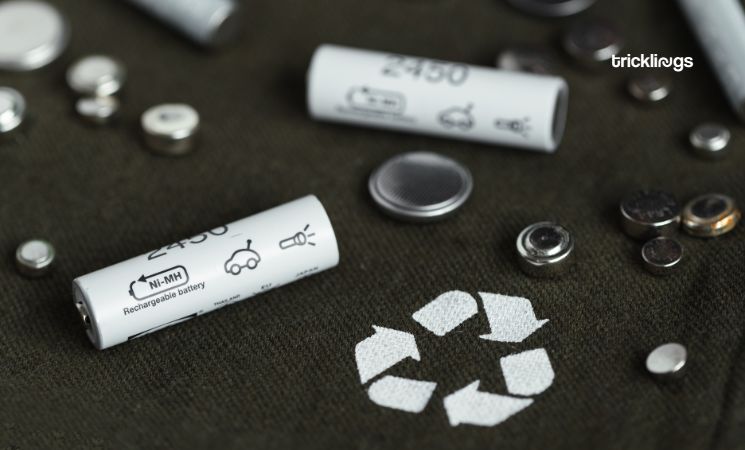Every year, millions of batteries end up in landfills, contributing to environmental pollution and health risks. Despite the convenience of batteries in powering our everyday devices, many people remain unaware of how crucial battery recycling is to our planet’s health.
This guide aims to illuminate the significance of battery recycling, explore its environmental benefits, and provide practical steps for proper disposal.
The Importance of Battery Recycling
When batteries are tossed in the trash, they often end up in landfills. Batteries contain harmful substances like mercury, cadmium, and lead.
These toxic chemicals can leak into the soil and water, polluting the environment. This pollution can harm plants, animals, and even people living nearby.
Environmental Hazards of Improper Disposal
Recycling batteries is a simple solution to a big problem. Many materials in batteries, like lead and nickel, can be reused to make new batteries.
For example, recycling just one car battery can provide enough lead to make five new batteries! This helps save natural resources and reduces the need for mining, which can harm the earth.
How Battery Recycling Works
Battery recycling is a step-by-step process that ensures materials are safely reused. It begins with the collection of used batteries from drop-off locations or recycling programs. These batteries are then sorted by type, such as lead-acid, lithium-ion, or nickel-cadmium.
Specialized facilities process the sorted batteries to recover valuable materials. Metals like lead, cobalt, and nickel are separated and prepared for reuse, while any hazardous materials that cannot be reused are carefully disposed of to prevent pollution. This process helps reduce waste and protect the environment.
Where to Recycle Batteries
Recycling batteries is easier than you might think! Many stores, such as appliance and electronics retailers, offer battery and appliance recycling bins for convenient drop-off.
Additionally, local programs often host special recycling events or provide designated drop-off centers in the community. Corporate Electronic recycling also runs programs to collect and recycle batteries, making electronic recycling simple to dispose of them responsibly.
By knowing where to take your used batteries, you can make sure they are handled the right way.
Benefits of Battery Recycling
Recycling batteries has many benefits as follows:
- Protects Nature
- Saves Resources
- Uses Less Energy
- Helps Communities
Taking Action
You can make a big difference by starting to recycle your batteries today! Begin by collecting used batteries in a safe container. Then, find a nearby recycling drop-off location to dispose of them properly.
Don’t forget to encourage your friends and family to recycle their batteries as well. This will help in spreading the word and making a positive impact.
Every small action adds up. Together, we can keep our planet clean and healthy for future generations.
A Healthier Planet Starts With You
Recycling batteries might seem like a small task, but it makes a big impact. By taking simple steps, you can help protect nature, save resources, and build a better future. Start recycling your batteries today-you’ll be doing something great for the earth!














